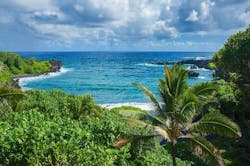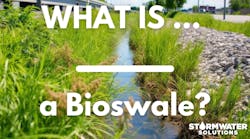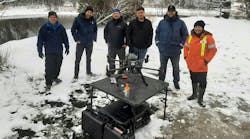The Hawaiʻi Department of Health (DOH) issued a Notice of Violation and Order (NOVO) to Maui Asphalt X-IV, LLC (Maui Asphalt) for discharging pollutants into state waters without a permit or pollution control practices.
According to Hawaiʻi Governor David Y. Ige’s website news release, Maui Asphalt operates in Waimea, Kauaʻi.
“Industrial pollution poses a threat to Hawaiʻi residents and our natural resources,” said Deputy Director of Environmental Health Kathleen Ho, reported the news release. “DOH will continue to enforce environmental regulations to protect public health and the environment.”
Maui Asphalt owns and operates an asphalt paving mixture and block manufacturing facility that has produced hot and cold mix asphalt concrete since June 2015 without having applied for NPDES permit coverage as required by Hawaii Administrative Rules.
Maui Asphalt must pay a penalty of $107,500 and obtain and comply with a National Pollutant Discharge Elimination System (NPDES) permit. According to the news release, the NPDES permit requires the facility to implement pollution control devices to keep pollutants from contaminating bodies of water.
Additionally, as part of the remediation of the issue, Maui Asphalt must develop a Storm Water Pollution Control Plan and work to keep pollutants from contaminating water resources, reported the news release.
The company has been authorized to immediately implement pollution control strategies, Best Management Practices and the requirements set forth in the Hawaii NPDES, General Permit authorizing the discharge of storm water associated with industrial facilities, according to the NOVO.
Maui Asphalt has operated the Waimea site for five years. Weather data has recorded 43 known instances during this time period when pollutants such as dirt, fuel, oils, and contaminated runoff were discharged into state waters.
Beginning the effective date of the NOVO, collect samples for analysis from a discharge resulting from a measurable storm event.






